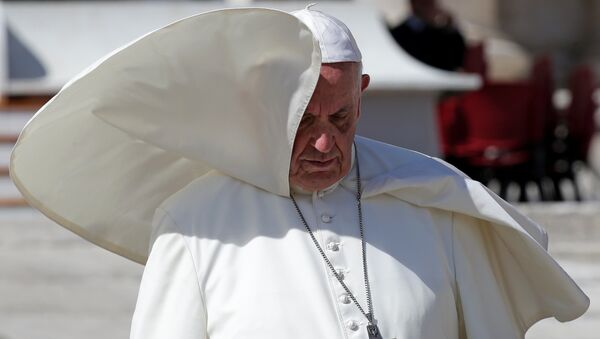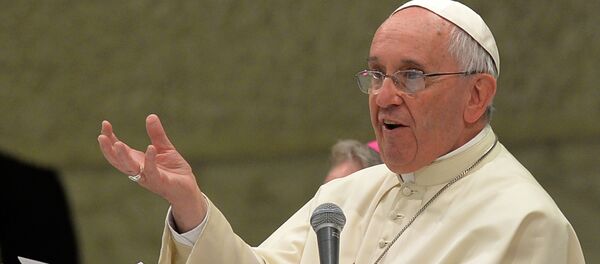The letter accuses Pope Francis of propagating seven heretical positions concerning marriage, moral living and the sacraments with his 2016 document “The Joy of Love” (Amoris Laetitia) and subsequent "acts, words and omissions."
According to the summary of the "Filial Correction", it was initially signed by 40 Catholic clergy and lay scholars and was delivered to the Pope at his Santa Marta residence on August 11, 2017.
"Since no answer was received from the Holy Father, it is being made public today, September 24, Feast of Our Lady of Ransom and of Our Lady of Walsingham. The letter, which is open to new signatories, now has the names of 62 clergy and lay scholars from 20 countries, who also represent others lacking the necessary freedom of speech," the summary reads.
Released in April 2016, "The Joy of Love" immediately sparked controversy because it opened the door to letting civilly remarried Catholics receive Communion, reminds The Associated Press (AP). Church teaching holds that unless these Catholics obtain an annulment — a church decree that their first marriage was invalid — they cannot receive the sacraments, since they are seen as committing adultery.
The letter therefore "lists the passages of Amoris laetitia in which heretical positions are insinuated or encouraged, and then it lists words, deeds, and omissions of Pope Francis which make it clear beyond reasonable doubt that he wishes Catholics to interpret these passages in a way that is, in fact, heretical," the summary says.
"In particular, the Pope has directly or indirectly countenanced the beliefs that obedience to God’s Law can be impossible or undesirable, and that the Church should sometimes accept adultery as compatible with being a practicing Catholic," it elaborates.
According to the agency, "none of the signatories of the letter is a cardinal, and the highest-ranking churchman listed is actually someone whose organization has no legal standing in the Catholic Church: Bishop Bernard Fellay, superior of the breakaway Society of St. Pius X. Several other signatories are well-known admirers of the old Latin Mass which Fellay’s followers celebrate."
The signatories nevertheless say that the initiative is "significant and a sign of the concern among a certain contingent of academics and pastors over Francis’ positions," which they said posed a danger to the faithful. The measure they said hadn’t been employed since the 14th century.




